Top Things To Do In Panama In 2026
Panama’s geographic size is modest, but its global relevance is not. The country connects two oceans and two continents, operates on a dollarized...
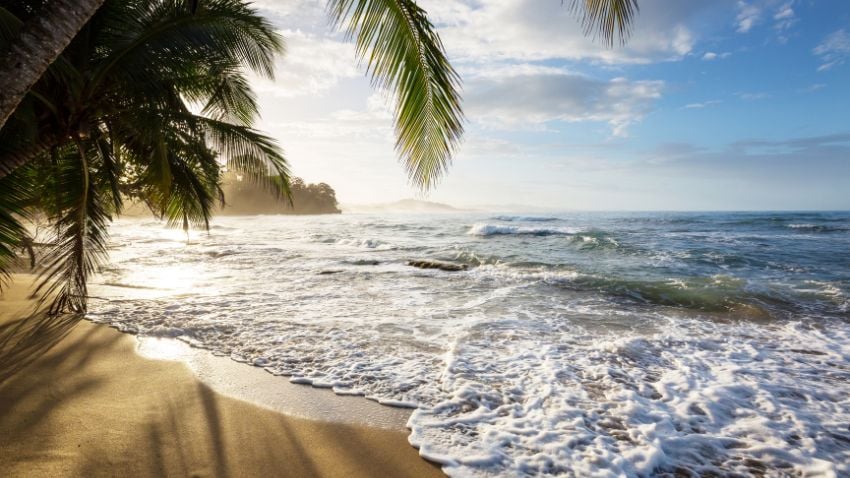
5 min read
Costa Rica is a small country in Central America, famous for its dense natural rainforest and gorgeous beaches. The climate of Costa Rica is warm and sunny all year round, with both a dry and wet season. One of the more developed countries in Latin America, Costa Rica has a generally low cost of living and is greatly desired for its political stability and low rates of crime.
Between the great nightlife, and the excellent variety of outdoor activities like surfing, hiking, and rafting, Costa Rica can be an exciting place to spend time. Its natural rainforest comprises six percent of the world’s biodiversity, and Costa Rica is home to no less than 12 diverse ecosystems. A nature lover’s paradise!
Many people who visit Costa Rica do so without the need for a visa. There are around 100 countries that are allowed visa-free access to Costa Rica for either 30 or 90 days depending on which country you live in. However, if you want to stay in Costa Rica longer without the hassle of border runs, or perhaps you want to live there on a permanent basis, then you must apply for residency. There are different types of residency that you can apply for.
Related article: The Basics Of How To Get A Second Passport Or A Second Residency
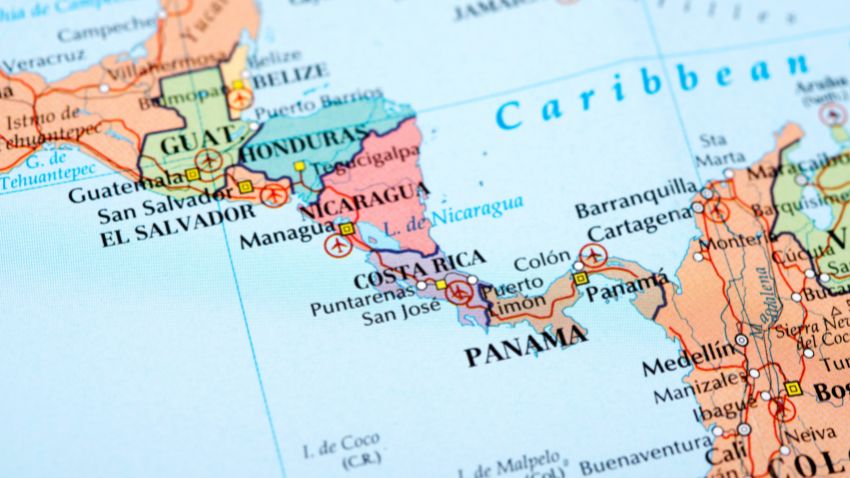
Map of Central America
Besides Costa Rica Rentista Visa, there is the Pensionado visa. Despite the name, and the fact that this residency permit is aimed at pensioners, there is no minimum age necessary to qualify for the pensionado residency permit. You are required to show a minimum monthly income of USD $1,000 ($12,000 a year), and this permit is valid for two years.
At the end of two years, you need to book an appointment with the immigration office and resubmit your proof of income. I would suggest not waiting until the due date, and start the process a couple of months before your visa expires.
If you have dependents; a spouse, children under 25, and children of any age with a disability; then Costa Rica may require additional income to demonstrate that you can support them as well. You will need to provide proof of your relationship with them; a marriage certificate, birth certificates, or even medical records.
You can renew the permit, so long as your pension income remains intact, and you have lived in Costa Rica at least four months out of each year.
Individuals who reside in Costa Rica on a pensionado residency permit are not allowed to work at a Costa Rican business. They are, however, allowed to own or start a business if they want.
Sources for your income can be from:
Social Security/state pension
Military pension
Private pension
Annuities
Other sources of retirement benefits
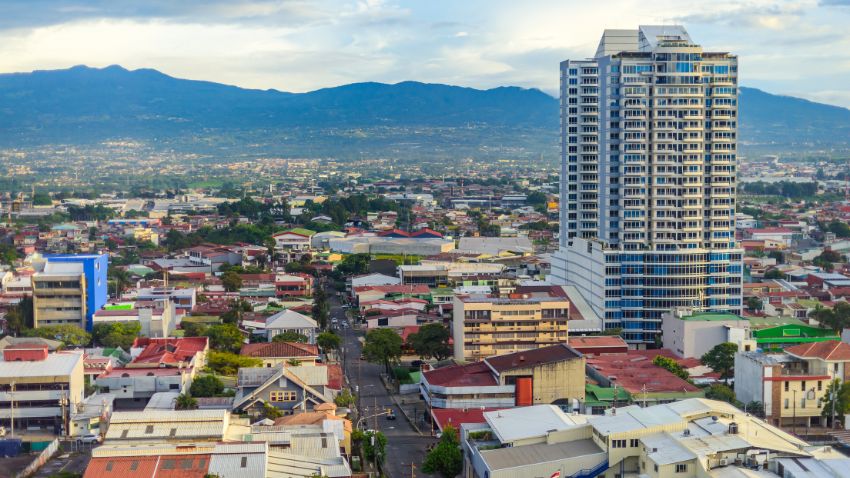
San Jose, Costa Rica
Individuals who can demonstrate either a monthly income of $2,500 or a bank deposit of $60,000 qualify to live in Costa Rica on a rentista residency permit. You deposit the $60,000 and each month for 2 years you can withdraw $2,500. You can obviously have a secondary bank account for everyday purposes, but this bank account is strictly for the withdrawal of the $2,500.
This permit was designed for individuals of independent means who wish to live on a long-term basis in Costa Rica. If you achieve rentista status, you are allowed to bring your wife and spouse with you.
This permit is valid for two years and can be renewed after that if you demonstrate you still have your income or wealth, and that you lived in Costa Rica for at least four months out of the year. The rentista permit does not allow you to work in Costa Rica, but it does allow you to own or start a business.
You will be required to contribute to La Caja Costarricense de Seguro Social (C.C.S.S.) (Social Security Fund), acquiring a seguro voluntario (voluntary insurance). The cost will depend on the income received but is around 9-10% of the stated monthly income.
Another category of temporary residency permits is that of the investor. This requires an investment of at least $150,000 in an enterprise or real estate. This can be a business like a hotel or a restaurant or even doing boat tours, so long as the amount invested is at least $150,000.
Or you can just buy a home or an estate. There is also an option to invest $100,000 in a forestry project. In addition to the investment itself, there are also additional fees, such as a $2,815 fee for the individual applying for this investor’s permit, and a $1,685 fee for each dependent.
This permit is valid for two years and can be renewed after that.
The Costa Rican government must approve your investment and your request can take up to two months to process. The visa will be filed as a temporary residence permit. If you are approved for an investor visa and live in Costa Rica, after three years you will be eligible to apply for permanent residency.
To maintain your visa, you must be present in the country for a minimum of 72 hours every year. Dual citizenship is permitted for citizens from certain countries, including the United States and Canada, making an investors’ visa a popular option for individuals from these countries.
Related content: Easiest Ways To Get Your Residency In Colombia
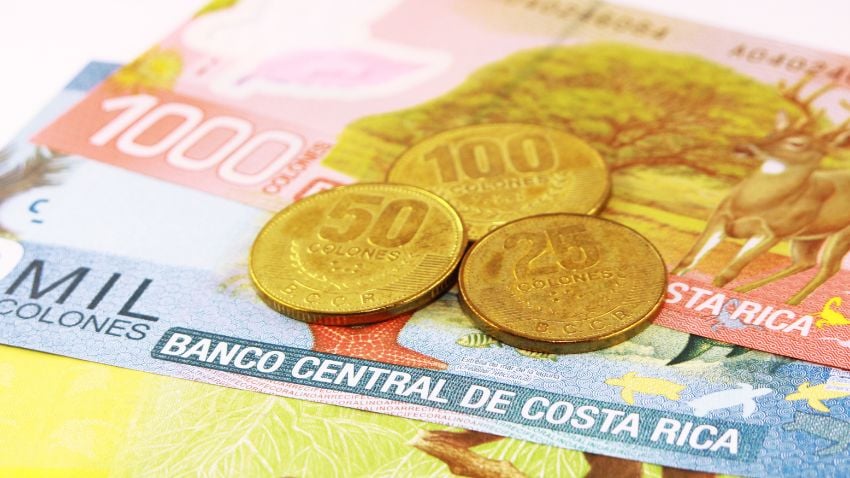
Costa Rican Colón
Another option for temporary residency in Costa Rica is to find employment there. Usually in that case your employer would apply for the permit on your behalf. If they are successful in the application for a work permit, you can then use that permit to apply for a temporary residence permit as a worker.
If you are planning to apply for temporary residence, you will first need to gather all the required documents from your home country. They need to be recently issued (within the last six months), and they need to be apostilled as well. You’ll need a criminal background check and a copy of your birth certificate. You’ll have to get a copy of your passport notarized by a Costa Rican lawyer, and all of your documents need to be translated into Spanish. Then you’ll need to fill out your application form, as well as write a letter to the Director of Migracion detailing why you want residency and giving background information on yourself. And you will need to include two passport photos of yourself, as well as pay all applicable fees.
There is a lot of paperwork, and it can be useful to rely upon the services of someone who specializes in international relocation to make sure all of your i’s are dotted and t’s are crossed.
Related content: How To Get Your Residency In Cyprus
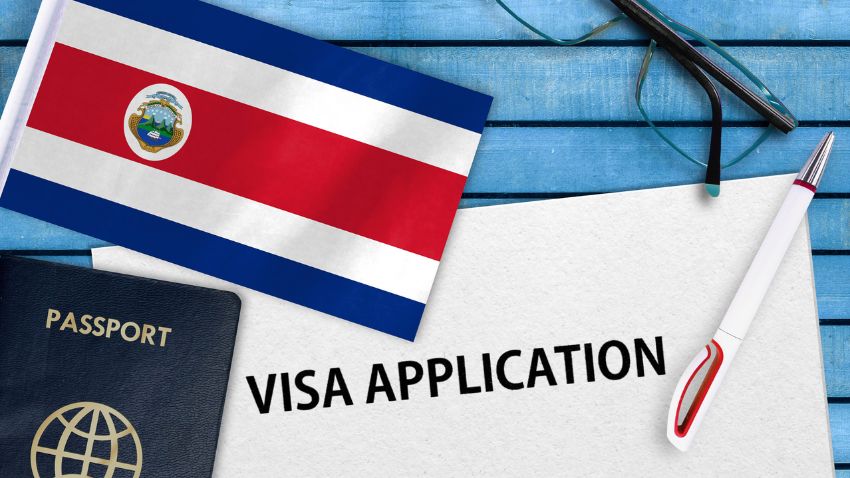
Flag of Costa Rica and Passport
Birth certificate
Marriage certificate (if applicable)
2 passport-size photos
Your passport and a photocopy
Police clearance certificate
Visa application form
Letter of request, stating your reason for application and your personal details
Proof of consular registration
Receipt of application payment
The application payment is $50, on top of which you must pay $1.25 plus $2.50 for every page of your visa application, in addition to the $200 you will pay to begin the process in Costa Rica.
All documents must be translated into Spanish and notarized. If you cannot translate yourself, you will be required to hire a translator. Once that is completed, all of the documents need to be apostilled.
After just three years of temporary residence in Costa Rica, an individual can apply for permanent residence, which is good for five years, and then you need to renew it. This grants you essentially all of the rights of Costa Rican citizens. You can work and travel as you please. You can also apply for citizenship after having resided in Costa Rica for seven years. It is important to note that you are required to have spent seven years physically within Costa Rica and that any time spent abroad will be subtracted from your total. If you are under 65 you will also be tested on your knowledge of Spanish and Costa Rican history, so you will have to hit the books.
Costa Rica has a territorial tax system, which means even if you are a tax resident you only owe taxes on income that is sourced within Costa Rica. When you combine this fact with the relatively low-income tax, which is capped at 25%, Costa Rican tax residency can be quite attractive for high-net-worth individuals.
If you want the best intel from the expat world, including profitable offshore opportunities, little-known tax-saving strategies, and hard-won insights on immigration, passports, and Plan-B residencies, all delivered to your inbox every single week, then join our daily correspondence, EMS Pulse®. Currently enjoyed by over 84,000 expats and expat-hopefuls worldwide. Fill in the form below to join our newsletter free:

Written by Mikkel Thorup
Mikkel Thorup is the world’s most sought-after expat consultant. He focuses on helping high-net-worth private clients to legally mitigate tax liabilities, obtain a second residency and citizenship, and assemble a portfolio of foreign investments including international real estate, timber plantations, agricultural land and other hard-money tangible assets. Mikkel is the Founder and CEO at Expat Money®, a private consulting firm started in 2017. He hosts the popular weekly podcast, the Expat Money Show, and wrote the definitive #1-Best Selling book Expat Secrets - How To Pay Zero Taxes, Live Overseas And Make Giant Piles Of Money, and his second book: Expats Guide On Moving To Mexico.

Panama’s geographic size is modest, but its global relevance is not. The country connects two oceans and two continents, operates on a dollarized...

Honduras’ newly elected president, Nasry Asfura of the conservative National Party, was sworn in on January 27, 2026. The election, held on November...

For a growing number of Americans, cost-of-living math no longer works. Housing feels harder to reach, everyday costs keep climbing, and long-term...